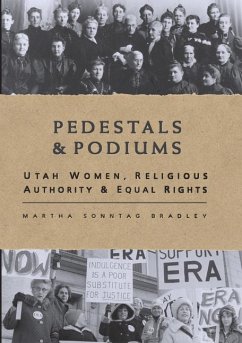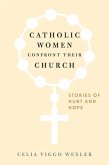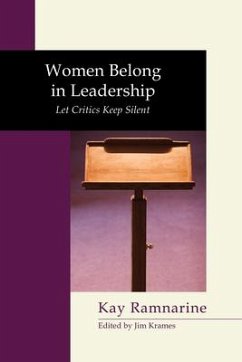The LDS Woman's Exponent of the 1800s promoted, in its masthead, "The Rights of the Women of All Nations." Editor Emmeline B. Wells was close friends with Susan B. Anthony and Elizabeth Cady Stanton. Church President Joseph F. Smith supported women's liberation, criticizing women who "seem to glory in their enthralled condition and who caress and fondle the very chains and manacles which fetter and enslave them!" Not surprisingly, Utah women were the first in the U.S. to get the vote. Fast forward to the 1970s, and the sentiment changed as the LDS Church took a stand against feminism and the Equal Rights Amendment. In a bitter campaign that was sometimes public and sometimes behind the scenes, the church joined the national charge against the ERA. It is a fascinating story, superbly documented, with equally interesting views from both sides of the controversies, showing how a once radical church became a bastion of conservatism.
Almost from the beginning, the women's movement has been divided into two factions-those wanting full equality with men (Susan B. Anthony, Alice Paul) and those seeking legal protections for women's particular needs (Julia Ward Howe, Eleanor Roosevelt). Early Utah leaders such as Relief Society President Emmeline B. Wells walked hand-in-hand with Anthony and other controversial reformers. However, by the 1970s, Mormons had undergone a significant ideological turn to the mainstream, championing women's unique roles in home and church, and joined other conservatives in defeating the Equal Rights Amendment.
Hinweis: Dieser Artikel kann nur an eine deutsche Lieferadresse ausgeliefert werden.
Almost from the beginning, the women's movement has been divided into two factions-those wanting full equality with men (Susan B. Anthony, Alice Paul) and those seeking legal protections for women's particular needs (Julia Ward Howe, Eleanor Roosevelt). Early Utah leaders such as Relief Society President Emmeline B. Wells walked hand-in-hand with Anthony and other controversial reformers. However, by the 1970s, Mormons had undergone a significant ideological turn to the mainstream, championing women's unique roles in home and church, and joined other conservatives in defeating the Equal Rights Amendment.
Hinweis: Dieser Artikel kann nur an eine deutsche Lieferadresse ausgeliefert werden.








